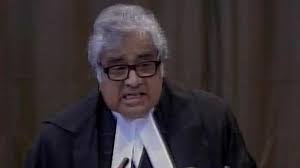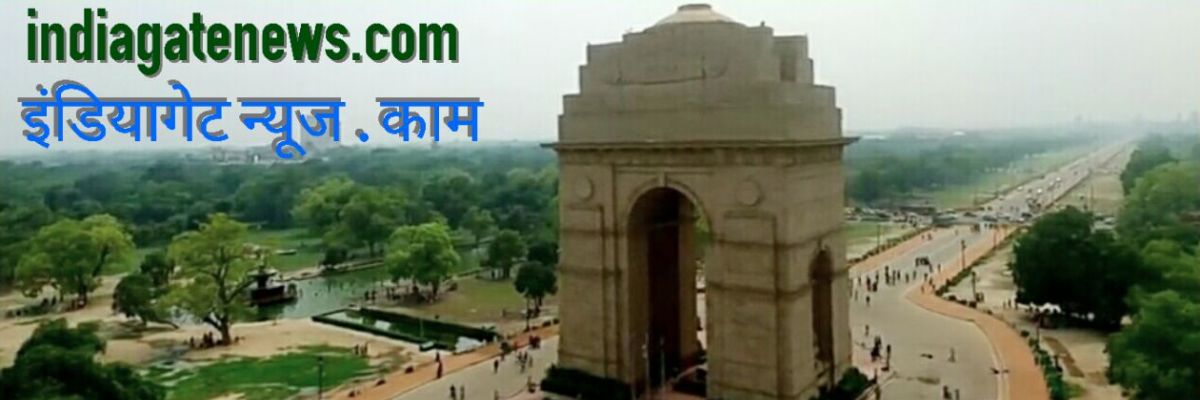
|
A write up by Harish Salve, well known Lawyer, who successfully argued India's case, in International Court of Justice, gives clarification about CAB. Well explained, shedding light on very many misinformation being spread. *What is CAB and what clarifications for the questions raised against CAB ?* THE CITIZENSHIP (AMENDMENT) BILL, 2019 is a BILL further to amend the Citizenship Act, 1955. It is not a full fledged bill but a narrow-tailored law specifically meant for religiously persecuted minorities in the 3 specified countries namely Pakistan, Bangaladesh and Afghanisthan. It says that "Any person belonging to Hindu, Sikh, Buddhist, Jain, Parsi or Christian community from Afghanistan, Bangladesh or Pakistan and who has entered into India on or before the 31st day of December, 2014 and staying here to safeguard their lives, shall not be treated as illegal migrant." Mis-information *1. Citizenship Amendment Bill is against Indian Muslims, they need to get their papers ready to continue living in the country.* One of the WORST LIES being spread is that Indian Muslims need to worry about the bill. The Citizenship Amendment Bill HAS NOTHING TO DO WITH PRESENT INDIAN CITIZENS Muslim or otherwise, as it seeks to grant citizenship to Religious Minorities in Pakistan, Bangladesh and Afghanistan. People belonging to Hindu, Jain, Buddhist, Sikhs, Parsi or Christian communities from these three countries who have come to India before 31/12/2014 for Religious persecution and already living in India will be able to apply for citizenship after the amendment is passed. No Indian citizen will be asked to produce any document to prove citizenship after the CAB is passed, it is just FALSE propaganda being spread by some people. Mis-information *2. Muslims from other countries can’t become Indian citizens after CAB is passed* CAB is a special one-time measure for the Religious Minorities who have already come to India after facing persecution in the three specified countries. The amendment does NOT cancel the existing Naturalisation Laws. Any person from any foreign Country seeking to be Indian citizen can apply for the same under the Existing Laws. There is NO BAR on Muslims from anywhere in the world, to seek Indian citizenship under existing laws, and CAB does NOT prohibit that. They can apply for Indian citizenship under section 6 of the *Citizenship Act, which deals with Citizenship by Naturalization*. Mis-information *3.Muslims from Pakistan, Bangladesh and Afghanistan can’t apply for citizenship or refuge in India* Although Muslims from these countries have been excluded from the CAB, it does NOT mean the door is shut forever for becoming Indian citizens. Although they are not given blanket relaxation to apply for citizenship under CAB, the USUAL NATURALISATION LAW remains available to them. Harish Salve asserted that the CAB does NOT undermine or interfere with the Existing rules of ASSYLUM and Muslims can continue to seek assylum or apply for citizenship under the existing rules. Mis-information *4.Illegal Muslim immigrants living in India will be deported after CAB is passed* CAB gives citizenship to people of six communities from three countries living in India, but it does not deal with the DEPORTATION of illegal immigrants. Although it protects Hindus, Jains, Buddhists, Sikhs, Parsis or Christians who had entered India illegally from deportation by giving an opportunity to apply for citizenship, it does not say anything on DEPORTATION, which is the subject matter of another law, the Foreigners Act, and not the Citizenship Act which the current bill seeks to amend. The process of DEPORTING anyone entering and living illegally in India is an ONGOING process, UNDER FORIGNERS' ACT and the CAB does not change that. Mis-information *5.Any Hindu can become Indian citizen after CAB is passed* Hindus, Jains, Buddhists, Sikhs, Parsis or Christians from only from Pakistan, Bangladesh and Afghanistan, who are already living in India for at least five years can apply for citizenship. It does NOT give automatic citizenship to Hindus, they must have lived in India for at least five years, and after that, they HAVE TO APPLY for citizenship. It is not particularly biased in favour of Hindus as BEING ARGUED BYMANY . Six communities from three countries have been given relaxation, for EVERYONE ELSE, the NORMAL NATURALISATION LAW remains applicable. For example, there are lots of Sri Lankan Tamil Hindus living in camps in Tamil Nadu, but they have not been included in CAB. These Sri Lankans had fled the Country during the war with LTTE in 1990s and are living in several camps. Mis-information *6. If CAB is about religious persecution, why Shias, Ahmediyyas, Hazaras, Balochs and Rohingyas are not included* Shias, Ahmediyyas, Hazaras all these groups are Muslim ethnic groups , they are not recognised as separate Religions anywhere in the world. As Muslims, they are Not minorities in Pakistan, Bangladesh and Afghanistan, which are either officially Islamic Countries OR have a very high Muslim majority. Therefore, it is Not possible to include these Muslim groups in the bill as it is specifically made for Religious Minorities in those Countries. Harish Salve stated on this doubt that the Countries specified in the CAB have their own State Religion and Islamic rules. He added that Islamic majority nations identify their people as per who follows Islam and who does not. Addressing governance problems in neighboring Countries is not the purpose of the CAB. Still, if any Muslims are being persecuted in these Islamic countries for practising their version of Islam, they can apply for asylum in India. India has already provided asylum to Tibetans, and a large number of people from Afghanistan, Sri Lanka, Uganda etc. Moreover, Balochs and Rohingyas are not Religious groups, they are ethnic groups. Baloch people are not wanting to migrate to India or any other country, they are demanding an independent nation in the Baloch region. Therefore, it does not make sense to include in CAB. In the case of Rohingyas, although they fled Myanmar after they were allegedly targeted by the military, their situation was not the same what minorities are facing in the three Islamic countries. Rohingyas were targeted in retaliation after they had attacked people from other communities, including Hindus, in Myanmar. Rohingya groups are conducting terror activities in Myanmar for a long time. Many such terrorists entered other countries along with ordinary Rohingyas, and they remain undetected. Therefore, the Rohingya groups remain a security threat to India, and they can’t be given any blanket relaxation for citizenship. Replying to the question of why the CAB does not include Tamils in Sri Lanka, Salve stated that Tamils in Sri Lanka are not religiously persecuted. Over the issue of Rohingyas, Salve stated that a law that addresses one evil does not need to address all the evils in all Countries. It is notable here that Myanmar, though a Buddhist majority nation, does not have a State Religion and Myanmar does not feature in CAB. For argument’s sake, Salve stated, if immigration or naturalisation facility is provided to the Rohingyas, it can also be argued that why people from African nations are not being included. “CAB is for the religiously persecuted minorities of the three specified neighbouring nations and it does Not need to be applicable to all Nations or all people in the world who have problems,” he added. Mis-information *7. CAB is against the Indian Constitution as the constitution prohibits discrimination in the name of religion* Harish Salve, one of India’s biggest names in National and International law explained further that the CAB aims to provide the persecuted minorities in these 3 countries a special status in the naturalisation process and it does not mean in any way that other communities or people will not be naturalised at all, for other communities the rules of general asylum process will be followed. So there is no violation of Article 14 here. Article 21 of the Indian Constitution is concerned with the right to life. Salve stated that it provides a right to life for those who live in India, NOT for those who want to enter India. On the question on whether specifying Hindus, Sikhs, Jains, Parsis, Buddhists and Christians is discriminatory against Muslims, Salve explained that the laws of equality does not mean having the same law for lions and lambs. He added that since the CAB has ‘religious persecution’ as the basis and is aiding those who are being religiously persecuted (tortured, victimized, oppressed especially on the basis of Religion and the minorities in the specified Islamic countries) then the community which belongs to the majority Religion in these Countries cannot claim ‘religious persecution’. And since the CAB is not about political or economic asylum seekers, Muslims do not feature there. Another argument is that the Constitution of India is for citizens of India, and the CAB is a special provision for people who are NOT citizens of India. Therefore, it is incorrect to say that CAB violates the constitution. Moreover, our constitution and laws already have several discriminatory provisions. We do not have equal law for every citizen, the constitution allows different laws for different Religions in several matters. We have Hindu Temples under government control but not Mosques or Churches. We have different laws, for schools run by Hindus and non-Hindus. Haj subsidies and salaries for Imams but no such facility for Hindus, the list goes on. As the constitution already allows discrimination among even the citizens, it CAN'T be said that excluding Muslim citizens from Pakistan, Bangladesh and Afghanistan violates the Constitution of India. Salve also expressed confidence that if the CAB comes under judicial scrutiny, India’s Solicitor General Tushar Mehta and Attorney General KC Venugopal will defend it well. *8.People in North East are opposing CAB because it is discriminatory* Although it is true that some people in north-eastern states, particularly in Assam, are protesting against the Citizenship Amendment Bill, their reason is completely different from the left-liberals and opposition parties. People in north-east are against giving citizenship to illegal immigrants from Bangladesh or anywhere, regardless of religion, and that’s why they are opposing it. People in the northeast don’t want any foreigners to be given citizenship, while outside northeast the opposition to the bill is over the exclusion of Muslims. Both the groups are actually on completely opposite stands in their opposition to the bill.
|


आपकी प्रतिक्रिया